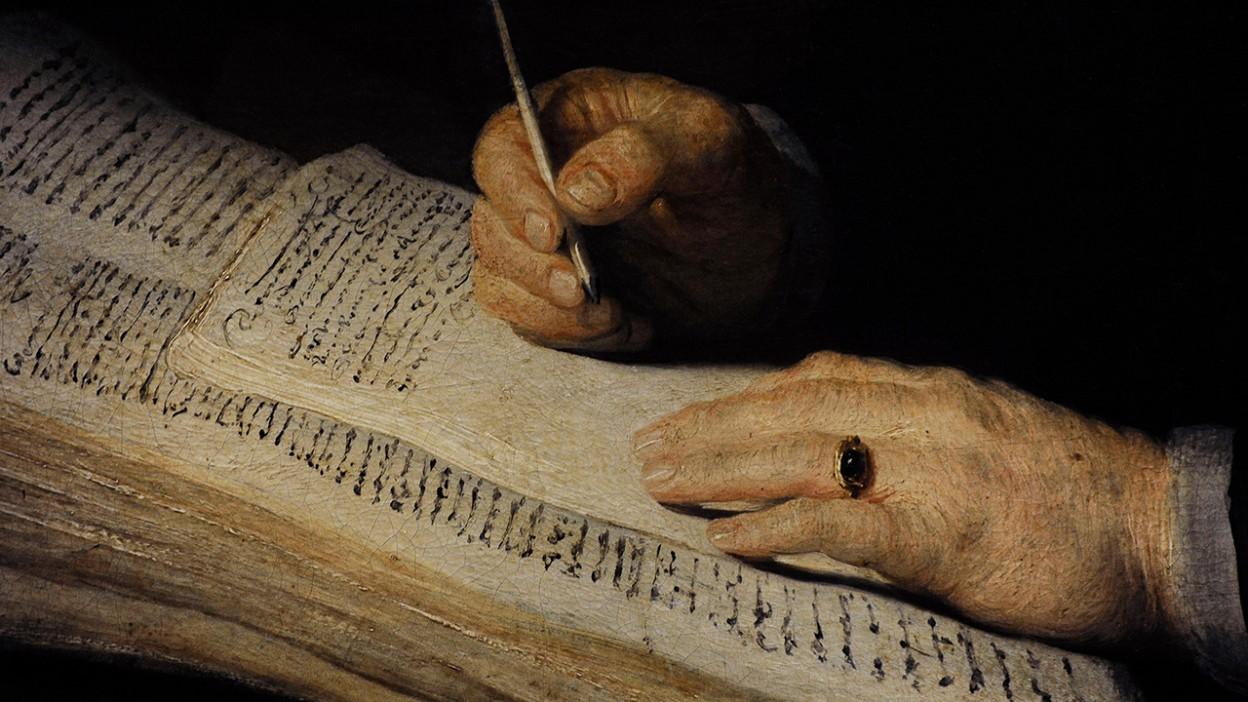How to write well | Irina Dumitrescu
Curated from: the-tls.co.uk
Ideas, facts & insights covering these topics:
12 ideas
·2.31K reads
13
Explore the World's Best Ideas
Join today and uncover 100+ curated journeys from 50+ topics. Unlock access to our mobile app with extensive features.
Why is it so hard to write clearly?
Plain speaking
How to write well
By Irina Dumitrescu
I have had many opportunities to ask myself this question lately. Over the past few months I’ve been taking a class on the basics of feature stories. Our teacher is a seasoned journalist who insists that we learn how to edit our own prose ruthlessly. (If he saw this paragraph, he would cut “seasoned” – a cliché – as well as all the words ending with -ly.)
61
422 reads
Tolerance for Jargon
What strikes me as I watch him work is his low tolerance for jargon. I thought I knew what jargon was: words such as “discourse”, “deconstruct” and “problematize”. These are the cigarette-holders of diction: showy, stretched out, more noxious than they look. My teacher’s bar is much higher. If it’s long and Latinate, it’s got to go.
60
386 reads
Dancing Around
I confess to having a soft spot for ten-dollar words. Anyway, it’s easier to avoid jargon than it is to pare down knotty turns of phrase. I once believed that burdening a sentence with adverbs and circumlocutions was a disease that only afflicted scholars. It turns out that many writers do it, whether or not they work in a university. It is as though we are dancing around – and away from – what we mean to say.
58
271 reads
Not Ignorance but Fear
One might assume that people write difficult prose because they don’t know any better. But it is not enough to learn the principles of clear writing. A writer can memorize Strunk and White’s The Elements of Style and still find herself using “the way in which” instead of “how”. It is not ignorance that makes writing convoluted. It is fear.
61
219 reads
Fear Transformed Into Anxiety
One fear is that by writing simply, we will come across as simple – with all that word’s disparaging associations with disability and low class. When a chorus of pundits insists that modern life is complex, simplicity starts to seem old-fashioned. Once we spoke of love; now we might talk about attachment and co-dependency. Fear has transformed into anxiety. The old words seem too plain to serve.
61
175 reads
Medieval Languages
This prejudice is wrong. One of the fascinating things I noticed when I was first learning to read medieval languages was that poets tended to repeat vocabulary. Instead of using varied terms for different aspects of an emotion or an idea, they used the same word over and over again. They did this because the words were often richer in meaning.
58
148 reads
Words in Context
Take Old English “mod”, the root of our word “mood”. It was used for the mind, the emotions, the spirit, as well as for certain qualities to be found in a person, such as courage, pride or magnificence. Or consider Middle High German “minne”, which is often translated as “courtly love”. “Minne” could also mean friendship, parental love, commemoration and sex. The medieval poet repeated simple words in order to reveal their layered senses. Today’s translator must consider each word in context and decide on the best modern equivalent.
60
131 reads
A Defensive Posture
This can mean rendering one medieval word in five different ways on the same page. But I think there is another, deeper fear that keeps so many writers tied to their obscurities: the terror that someone might understand what they are trying to say. Many writers assume a defensive posture when they sit down to their computers. They are afraid of being taken to task for their beliefs, arguments or point of view. So they slip in “perhaps” and “it could be argued”, making their claims too slippery to pin down.
59
111 reads
"Garden Writing"
The alternative to the fortress is, to my mind, the garden. “Garden” writing is inviting, colourful and open to crowds. It allows each reader to find their own way through a poem or an essay, crafting their own meaning as they go. Gardens are also vulnerable. They change with time. The guests might pluck the roses or stomp on the flowerbeds. Someone might be allergic to pollen. To write clear, welcoming language is to open yourself up to complaints.
60
117 reads
"Fortress Writing"
I think of this as “fortress” writing. It is impenetrable. No critic can storm it, but no reader can enjoy it either. Universities train their students to write like this: not to teach, persuade or delight, but to resist attack. The best argument is not necessarily the most innovative or profound, but the one with the fewest holes in it.
59
119 reads
Plain Language
And yet there is nothing as powerful as plain language, as this well-known Middle English religious lyric shows:
Nou goth sonne vnder wod,
Me reweth, Marie, thi faire rode.
Nou goth sonne vnder tre,
Me reweth, Marie, thy sone and the.
The first line describes the sun’s rays slipping behind the woods. But the poem’s early Christian audience would have known that “wod” and “tre” could also refer to the Cross. Perhaps we are not looking at a forest, but at the sun reddening behind Calvary, highlighting the crosses as it descends.
58
118 reads
Meditate with Language
The speaker pities Mary’s beautiful blushing face, or “rode”, as well as the Rood, lovely in its promise of salvation despite being an instrument of torture. Above all, the repetition of “sonne” – a sun, a son and soon – would have recalled the sunrise, or resurrection, to come. This quatrain was not written to impress or deflect, but to invite its readers to meditate with language both humble and rich.
Irina Dumitrescu teaches medieval literature at the University of Bonn
58
96 reads
IDEAS CURATED BY
Antonio Gallo's ideas are part of this journey:
Learn more about personaldevelopment with this collection
How to create customer-centric strategies
The importance of empathy in customer success
The impact of customer success on business growth
Related collections
Similar ideas
Read & Learn
20x Faster
without
deepstash
with
deepstash
with
deepstash
Personalized microlearning
—
100+ Learning Journeys
—
Access to 200,000+ ideas
—
Access to the mobile app
—
Unlimited idea saving
—
—
Unlimited history
—
—
Unlimited listening to ideas
—
—
Downloading & offline access
—
—
Supercharge your mind with one idea per day
Enter your email and spend 1 minute every day to learn something new.
I agree to receive email updates

